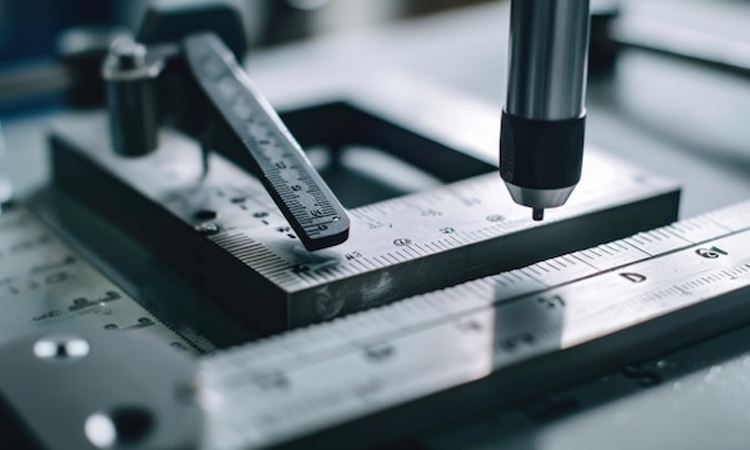Metrology, the science of measurement, is the backbone of quality assurance across diverse industries such as aerospace, automotive, healthcare, and manufacturing. As industries evolve with advancing technologies and stricter quality demands, the metrology sector is embracing innovations that enhance precision, efficiency, and adaptability. Here are the key future trends shaping the metrology industry.
Integration of Industry 4.0 and Smart Metrology
Industry 4.0 is revolutionizing metrology by integrating smart technologies into measurement systems. Smart metrology solutions equipped with IoT sensors, data analytics, and cloud connectivity enable real-time monitoring and predictive insights. These advancements ensure seamless integration into automated production lines, reducing downtime and enhancing process control.
Advancements in 3D Metrology
3D metrology systems are becoming increasingly essential for modern manufacturing processes. With the proliferation of additive manufacturing and complex designs, tools like 3D laser scanners and structured light systems are delivering faster and more accurate dimensional analyses. These technologies allow for detailed surface mapping and precise geometric validation, critical for industries like aerospace and medical devices.
AI-Driven Measurement and Data Analysis
Artificial intelligence (AI) and machine learning (ML) are transforming the metrology landscape by optimizing measurement processes and data analysis. AI-driven software can identify patterns, predict deviations, and recommend corrective actions, significantly enhancing efficiency and reducing human error. This trend supports the shift towards autonomous, adaptive measurement systems.
Non-Contact and Optical Metrology
Non-contact metrology methods, including laser, vision, and optical systems, are gaining traction due to their ability to measure sensitive and intricate components without causing damage. These techniques are particularly valuable for industries dealing with delicate materials or micro-scale components, such as electronics and biomedical devices.
Portable and In-Line Measurement Systems
The demand for portable and in-line metrology solutions is growing as manufacturers seek to reduce measurement time and improve flexibility. Portable devices, such as handheld laser scanners and wireless probes, provide on-site inspection capabilities, while in-line systems enable real-time quality checks within production processes, minimizing errors and rework.
Sustainability in Metrology
Sustainability is becoming a priority across industries, and metrology is no exception. The development of energy-efficient measurement systems and the adoption of eco-friendly practices in equipment manufacturing are aligning the industry with global sustainability goals. These initiatives are helping organizations reduce their environmental footprint.
Quantum Metrology and Extreme Precision
Quantum technologies are paving the way for ultra-precise measurements, which are critical for advancements in nanotechnology, space exploration, and advanced materials. Quantum-based metrology offers unparalleled accuracy, enabling breakthroughs in scientific research and high-precision manufacturing.
Collaborative Metrology Platforms
Collaboration between metrology equipment manufacturers, software developers, and end-users is fostering the creation of integrated platforms. These platforms offer unified solutions combining hardware, software, and data analytics, streamlining the measurement process and enhancing productivity.
The future of the metrology industry is marked by innovation and adaptability, as it continues to meet the demands of modern manufacturing and scientific exploration. From AI-driven insights to quantum precision, these emerging trends are ensuring that metrology remains at the forefront of quality assurance and industrial progress. As industries push the boundaries of design and performance, metrology will play a crucial role in shaping a high-precision future.
Image courtesy : Design by Freepik



